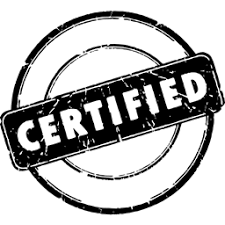 In the realm of academic research, the 3rd chapter of a case study serves as a pivotal cornerstone, offering valuable insights and a deep understanding of complex phenomena. It is within the methodology chapter, often referred to as Chapter III, that the true essence of your research methodology is elucidated. We specialize in providing expert assistance in refining and perfecting your methodology. We understand the significance of this chapter and the critical role it plays in the overall quality of your research work. We take pride in our team of skilled case study Chapter III editors. These editors are not just proficient in the art of editing but possess a profound understanding of the nuances of case study research methodologies across various academic disciplines. Their expertise allows them to meticulously review and enhance your methodology section, ensuring that it adheres to the highest academic standards. Our skilled editors are not only well-versed in the rules of grammar and style but also possess the ability to comprehend the unique demands of your research. They work collaboratively with you to refine your case study, enhancing its clarity, coherence, and precision. We recognize that your methodology chapter is the backbone of your research, and our skilled editors are committed to ensuring it is a testament to your academic excellence. In this ever-evolving academic landscape, trust us to help you present your research methodology with the utmost clarity and precision. Your success is our mission, and we are here to guide you on how to edit a case study chapter three.
In the realm of academic research, the 3rd chapter of a case study serves as a pivotal cornerstone, offering valuable insights and a deep understanding of complex phenomena. It is within the methodology chapter, often referred to as Chapter III, that the true essence of your research methodology is elucidated. We specialize in providing expert assistance in refining and perfecting your methodology. We understand the significance of this chapter and the critical role it plays in the overall quality of your research work. We take pride in our team of skilled case study Chapter III editors. These editors are not just proficient in the art of editing but possess a profound understanding of the nuances of case study research methodologies across various academic disciplines. Their expertise allows them to meticulously review and enhance your methodology section, ensuring that it adheres to the highest academic standards. Our skilled editors are not only well-versed in the rules of grammar and style but also possess the ability to comprehend the unique demands of your research. They work collaboratively with you to refine your case study, enhancing its clarity, coherence, and precision. We recognize that your methodology chapter is the backbone of your research, and our skilled editors are committed to ensuring it is a testament to your academic excellence. In this ever-evolving academic landscape, trust us to help you present your research methodology with the utmost clarity and precision. Your success is our mission, and we are here to guide you on how to edit a case study chapter three.
What Makes it Essential to Edit Methodology in a Case Study?
Editing the methodology in a case study is essential for several reasons:
- Precision and Meticulousness: A well-edited methodology ensures that the research methods and procedures are described with clarity and precision. This helps readers understand how the study was conducted, ensuring transparency and replicability.
- Alignment with Research Objectives: Through editing, researchers can refine the methodology to ensure that it aligns closely with the specific research objectives and questions. This alignment enhances the study's relevance and validity.
- Ethical Considerations: Ethical issues may emerge during the research process or through review. Editing the methodology allows researchers to address and rectify any ethical concerns, ensuring the study adheres to ethical standards.
- Eliminating Ambiguities: Editing helps identify and eliminate ambiguities, contradictions, or inconsistencies in the methodology section, which could otherwise undermine the study's credibility.
- Improved Validity and Reliability: Methodological edits can enhance the study's overall validity and reliability by fine-tuning data collection and analysis procedures, reducing bias, and increasing the accuracy of findings.
- Enhanced Replicability: A well-edited methodology provides a roadmap for other researchers to replicate the study. This is crucial for building upon existing knowledge and confirming the study's results.
Why Should You Consider Seeking Our Expert Methodology Editing Help?
Seeking our case study methodology editing assistance is paramount to ensuring the quality, credibility, and effectiveness of your research. Our seasoned professionals bring a wealth of experience and a keen eye for detail to the table, meticulously reviewing your methodology section to ensure it meets the highest academic standards. We understand that a well-crafted methodology is the backbone of any robust case study, as it outlines the systematic approach used to gather and analyze data. By considering our expertise, you gain access to a team of experts who can identify and rectify potential flaws, inconsistencies, or ambiguities in your methodology, thus bolstering the rigor and reliability of your research. We also ensure that your methodology aligns seamlessly with your research objectives, enhancing the coherence of your study. Additionally, our editing services encompass language refinement, improving the clarity and readability of your methodology section, and making it more accessible to your readers. With our assistance, your case study will not only meet but exceed the expectations of reviewers, contributing to the overall success of your academic or professional endeavors.
The Common Editing Mistakes You Must Avoid in a Case Study Chapter III
 In a methodology, several common editing mistakes must be vigilantly avoided to ensure the research's integrity and clarity. You should be cautious about an overreliance on jargon and technical terminology, as it can alienate readers who are not intimately familiar with the subject matter. Additionally, clarity in presenting the case study's purpose, research questions, and theoretical framework is crucial, as vague or poorly defined elements can lead to confusion. Another pitfall to steer clear of is neglecting to provide adequate context and background information, which can make it difficult for readers to understand the significance of the case under examination. Furthermore, you must be meticulous in citing and referencing sources, as any failure in this regard can result in accusations of plagiarism or academic misconduct. More so, a critical but often overlooked mistake is insufficient proofreading and editing for grammar, spelling, and formatting errors, which can detract from the overall professionalism and credibility of the case study. In sum, attention to these common editing pitfalls is essential to ensure that a methodology communicates its findings effectively and maintains its scholarly rigor.
In a methodology, several common editing mistakes must be vigilantly avoided to ensure the research's integrity and clarity. You should be cautious about an overreliance on jargon and technical terminology, as it can alienate readers who are not intimately familiar with the subject matter. Additionally, clarity in presenting the case study's purpose, research questions, and theoretical framework is crucial, as vague or poorly defined elements can lead to confusion. Another pitfall to steer clear of is neglecting to provide adequate context and background information, which can make it difficult for readers to understand the significance of the case under examination. Furthermore, you must be meticulous in citing and referencing sources, as any failure in this regard can result in accusations of plagiarism or academic misconduct. More so, a critical but often overlooked mistake is insufficient proofreading and editing for grammar, spelling, and formatting errors, which can detract from the overall professionalism and credibility of the case study. In sum, attention to these common editing pitfalls is essential to ensure that a methodology communicates its findings effectively and maintains its scholarly rigor.
A methodology plays a fundamental role in a case study and is indispensable for gaining in-depth insights into complex phenomena. It serves as a powerful tool for researchers to explore real-world situations, analyze various variables, and draw meaningful conclusions. However, the effectiveness of a case study hinges on the quality of its presentation and analysis. This is where academic paper editing assistance steps in as an invaluable resource. Throughout this discussion, we have delved into the significance of academic editing in refining case study research. It not only enhances the clarity, coherence, and organization of the study but also ensures the accuracy and validity of the findings. Our editors are proficient in the nuances of case study chapter three and can help you communicate your ideas effectively, ensuring that the research stands up to rigorous academic standards. Seeking our editing assistance is a prudent choice. It not only enhances the scholarly value of the research but also increases the likelihood of publication and wider dissemination. To excel in the realm of case study research, researchers must recognize the importance of this collaborative process between authors and editors, working in tandem to produce studies that contribute significantly to the body of knowledge. Our academic editing is an indispensable ally for you, to enhance the rigor and impact of your research, and ensure that their valuable insights reach a broader audience, ultimately advancing the boundaries of knowledge in their respective fields.
Help with Editing a Case Study Chapter 3 | Experts Near You
 The creation of a well-structured and accurately edited case study is paramount. Chapter 3, often dedicated to the methodology employed, plays a critical role in establishing the credibility and rigor of your research. At times, even the brightest minds find themselves grappling with the intricacies of presenting their research methodologies effectively. We are here and ready to offer you invaluable assistance in refining your case study chapter. Our team of experts, well-versed in the art of academic editing and research methodologies, is dedicated to providing you with case study chapter three editing guidance. When it comes to case studies, the methodology chapter is the linchpin that holds the entire research endeavor together. It requires a keen eye for detail, a deep understanding of research methods, and the ability to convey complex processes in a clear and concise manner. Our team not only possesses these qualities but is also committed to helping you achieve academic excellence. Whether you're a student embarking on a research journey or a seasoned academic seeking to refine your work, we offer a helping hand to ensure that your methodology chapter stands out. With our assistance, you can rest assured that your research will be presented with the clarity and precision it deserves, elevating your academic achievements to new heights. Explore the wealth of involvement and know-how we bring to the table and take a step closer to realizing your research aspirations. We provide reliable editing help for case study methodologies.
The creation of a well-structured and accurately edited case study is paramount. Chapter 3, often dedicated to the methodology employed, plays a critical role in establishing the credibility and rigor of your research. At times, even the brightest minds find themselves grappling with the intricacies of presenting their research methodologies effectively. We are here and ready to offer you invaluable assistance in refining your case study chapter. Our team of experts, well-versed in the art of academic editing and research methodologies, is dedicated to providing you with case study chapter three editing guidance. When it comes to case studies, the methodology chapter is the linchpin that holds the entire research endeavor together. It requires a keen eye for detail, a deep understanding of research methods, and the ability to convey complex processes in a clear and concise manner. Our team not only possesses these qualities but is also committed to helping you achieve academic excellence. Whether you're a student embarking on a research journey or a seasoned academic seeking to refine your work, we offer a helping hand to ensure that your methodology chapter stands out. With our assistance, you can rest assured that your research will be presented with the clarity and precision it deserves, elevating your academic achievements to new heights. Explore the wealth of involvement and know-how we bring to the table and take a step closer to realizing your research aspirations. We provide reliable editing help for case study methodologies.
What are the negative effects of a poorly edited methodology in a case study?
A poorly edited methodology in a case study can have several negative effects:
- Ambiguity: Unclear or vague language can lead to ambiguity in the research process, making it difficult for readers to understand how the study was conducted. This can undermine the credibility of the research and its findings.
- Reproducibility Issues: Inadequate descriptions of research procedures can hinder the replication of the study by other researchers. Without a well-defined methodology, it becomes challenging to ensure the reliability and validity of the results.
- Bias and Subjectivity: Poor editing can result in the inadvertent inclusion of biased language or subjective statements in the methodology, which can compromise the objectivity of the research.
- Ethical Concerns: A lack of clarity in the methodology may obscure ethical considerations, potentially raising concerns about the treatment of human subjects or the use of sensitive data.
- Inconsistencies: Inconsistencies in the methodology section can confuse readers and cast doubt on the study's rigor. For example, if the sampling method is described differently in different parts of the methodology, it can raise questions about the study's reliability.
- Reduced Impact: A poorly edited methodology can detract from the overall quality of the research, diminishing its impact and limiting its contribution to the field.
Our expert process of revising and improving a methodology
Revising and improving a methodology is a critical process that enhances the quality and rigor of the case study. We can offer reliable help with editing a case study chapter 3, using an expert process that involves several key steps.
- Review of Existing Methodology: We begin by thoroughly reviewing the current case study chapter three to understand its strengths and weaknesses, and identify areas that require improvement.
- Research Design Refinement: We refine the research design by clarifying the research questions to ensure they are specific, measurable, and relevant to the study's goals.
- Data Collection Enhancement: Our experts can revise data collection methods to gather more comprehensive and relevant information. This may involve using multiple sources, such as interviews, surveys, observations, or archival data.
- Use of Proper Sampling Strategy: We reevaluate the sampling strategy to ensure it represents a diverse and meaningful sample of cases.
- Data Analysis Techniques: Our editors enhance data analysis techniques, including the use of qualitative and quantitative methods, thematic analysis, or statistical analysis, depending on the research focus.
- Validity and Reliability: We pay close attention to validity and reliability by employing triangulation, member checking, and inter-rater reliability checks to ensure the accuracy and consistency of findings.
- Proper Documentation: We document all revisions and improvements made to the methodology in a transparent and detailed manner to ensure transparency and reproducibility.
How to edit & incorporate suitable tone and language in a case study Chapter three
Editing and incorporating a suitable tone and language into a case study's methodology is crucial to ensure clarity, professionalism, and engagement. Establish a formal and objective tone throughout the chapter. Avoid using overly technical jargon unless it is necessary for your audience's understanding. Instead, aim for clear explanations and define any specialized terms. Use a consistent and appropriate writing style, such as the third person, to maintain objectivity. Additionally, maintain a logical flow of ideas by using transitional phrases and sentences to link sections and concepts, making it easier for readers to follow your argument. Furthermore, consider your target audience. Tailor the tone and language to match their expertise level and interests. If your case study is for a general audience, simplify complex concepts and provide ample background information. For an expert audience, delve deeper into technical details and assume a higher level of knowledge. Also, maintain a professional and respectful tone. Avoid using subjective language or making unsupported claims. Back up your statements with credible sources and data, and remain unbiased throughout the chapter.
 With our expert case study editors near you, you can access invaluable support and guidance that can make the difference between a mediocre and an outstanding case study. With the expertise of our professionals, you not only ensure the accuracy and coherence of your research but also improve its overall credibility. We can assist in refining your research questions, selecting the appropriate research design, and meticulously analyzing your data. Our critical eye can identify flaws, gaps, or inconsistencies that may otherwise go unnoticed. Furthermore, collaborating with our experts comes with the advantage of localized knowledge and context-specific insights, which can be especially beneficial for case studies involving specific geographical regions or cultural nuances. Editing your case study with the help of our experts is an investment in the success of your research. It not only enhances the scholarly rigor of your work but also increases its potential impact. So, don't hesitate to tap into the wealth of expertise available, as it can elevate your case study to new heights of excellence and contribute meaningfully to your academic and professional journey.
With our expert case study editors near you, you can access invaluable support and guidance that can make the difference between a mediocre and an outstanding case study. With the expertise of our professionals, you not only ensure the accuracy and coherence of your research but also improve its overall credibility. We can assist in refining your research questions, selecting the appropriate research design, and meticulously analyzing your data. Our critical eye can identify flaws, gaps, or inconsistencies that may otherwise go unnoticed. Furthermore, collaborating with our experts comes with the advantage of localized knowledge and context-specific insights, which can be especially beneficial for case studies involving specific geographical regions or cultural nuances. Editing your case study with the help of our experts is an investment in the success of your research. It not only enhances the scholarly rigor of your work but also increases its potential impact. So, don't hesitate to tap into the wealth of expertise available, as it can elevate your case study to new heights of excellence and contribute meaningfully to your academic and professional journey.






